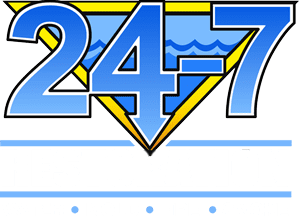Spring is in the air. Birds are chirping, leaves are growing, and everyone is eager to spend time outdoors. For many Boulder, Colorado residents and business owners, it’s time to get the lawn ready for a healthy growing season. In an arid climate, it’s common to be in a hurry to get the sprinkler system going as early as possible to keep freshly growing grass healthy. Unfortunately, starting sprinkler season early can lead to unanticipated problems. Colorado weather can be unpredictable during the spring months, and your sprinkler shouldn’t be turned on until after the last hard freeze, which often occurs in early May. When you begin using your sprinkler, it’s important to be watchful for potential damage that leads to flooding that can damage your home.
Why Sprinkler Season Leads to Flooding
Residential and commercial sprinkler systems have many working parts that can be damaged by harsh winter weather. Additionally, when systems are turned on too early, water can freeze in the lines when the weather cools, leading to burst pipes or damaged sprinkler heads. When a sprinkler system is out of use for many months, freezing temperatures or tree roots can break or damage sprinkler lines and heads. If you turn your automatic sprinkler system on without an inspection, you could end up with a river running into your basement or crawl space. Sadly, most residents and business owners are completely unaware of the problem until after the damage is done.
Limit Flood Risks with a Spring Inspection
While you may not be an irrigation expert, it’s a good idea to get to know a little about your sprinkler system. A short inspection and a watchful eye can save you the heartache, hassle, and costs that flooding can cause. Follow these tips before starting up your sprinkler system this spring.
-
- Check each sprinkler head for proper pressure, and directional spray. If heads are visibly cracked or damaged, have them replaced before running your sprinkler system.
- Examine outdoor spigots and hose bibs for damage and proper performance when turned on. It’s common for outdoor pipes to freeze and break during the winter. A decrease in water pressure is a signal that a pipe is broken.
- Test each sprinkler station when you start running your sprinkler system. Watch for areas where pressure is low or areas where the lawn becomes soggy. This is a sign that one of the sprinkler lines underground is broken.
What To Do When Flooding Occurs
Flooding causes more than a mess. It can cause dangerous structural and mold damage to your home. Flooding happens when you least expect it. No matter what caused the flood, it’s important to react quickly to limit the potential damage that can occur even after the water is gone. If you find water entering your home or building, the first step is to stop the leak as closely to the source as possible. Unexplained water entering your basement or crawl space during sprinkler season is a likely sign you have damage to your system. Take these steps to minimize damage.
-
- Shut off water to the system and turn off electricity in the affected area.
- Remove valuables and possessions from the area if possible.
- Contact a professional for assistance protecting your home from structural damage and dangerous mold.
No matter what causes a flood at your Boulder, Colorado home or business, you shouldn’t have to face it alone. Improper cleanup from water damage can lead to serious consequences in the future. 24-7 Restoration is a full-service restoration company serving residents and businesses in Boulder, Colorado and the surrounding front range areas. We respond to your flooding emergencies promptly, take the correct measures to extract water and remaining moisture, eliminate mold, and restore your home or commercial building to its former pristine condition. Don’t let a sprinkler season flood cause long-term damage to your home, call 24-7 Restoration and get the help you need anytime day or night.


